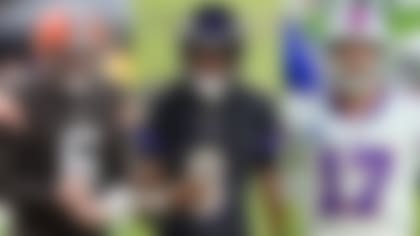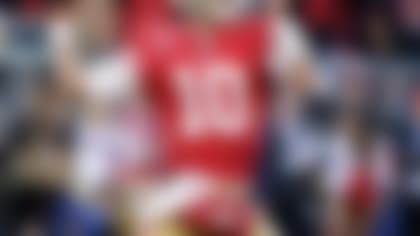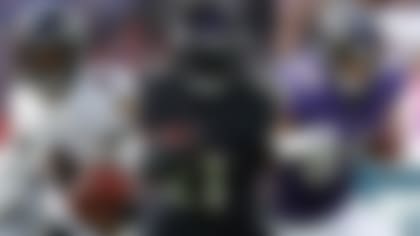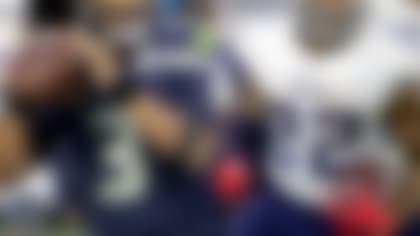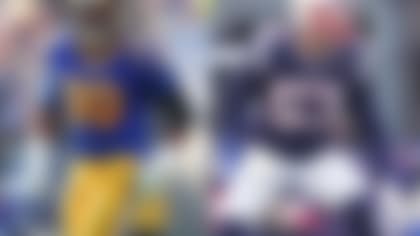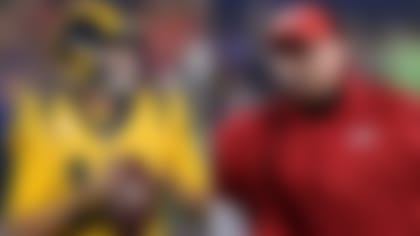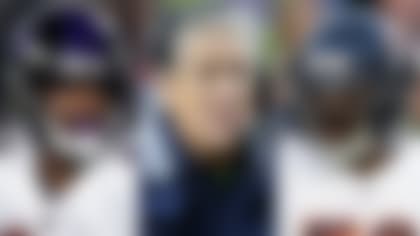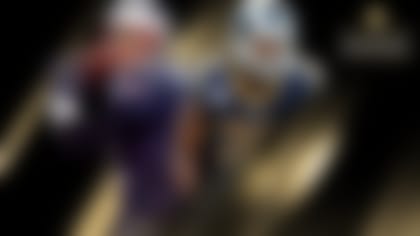Shortly after the Baltimore Ravens took a 28-6 lead over the San Francisco 49ers on Jacoby Jones' 108-yard kick return to open the second half, a power outage dimmed the lights and brought Super Bowl XLVII to a screeching halt. How did the ensuing 34-minute delay affect this game?
People will point to the power outage as a turning point, but San Francisco punted right after returning to the field. I believe the 49ers would have made a comeback in this game either way. It's too convenient to blame the delay for the Ravens' third-quarter struggles. After all, Baltimore also put together two long offensive drives and made a goal-line stand; were the Ravens suddenly not affected by the delay?
My main point: No one really knows how the break in play affected the game.
The statistics clearly point toward the 49ers having the edge after the blackout. Following the delay, the Niners outscored Baltimore 25-6 and gained 289 yards to the Ravens' 126.
It would have been consistent with human nature for the Ravens to let up with a 28-6 lead, especially when they had to deal with what amounted to a second halftime that kept Joe Flacco off the field for 84 minutes in real time. Meanwhile, San Francisco -- which had to play with a greater sense of urgency at that point anyway -- was given a chance to regroup. Quarterback Colin Kaepernick had an opportunity to get himself ready to bring his team back.
Well, let's put it this way ... I don't think it put the 49ers back in the game. How many times this season did we see a good team jump out to a huge lead, then give it up this quick? The level of competition -- er, parity -- in the NFL is what it is. The difference in ability between "quality" teams is so negligible, any letdown on the part of a winning squad gives the losing side a chance to come back from a large deficit. For examples of this, look no further than the NFC Championship Game, or the Seattle Seahawks' comeback in Atlanta during the divisional round. How about the New England Patriots' furious effort to roar back from a 31-3 deficit against these same 49ers late in the regular season?
The power outage certainly helped the 49ers get back in the game. The extended break allowed the players to calm down and gather themselves, while giving the coaching staff the opportunity to make some needed adjustments. I strongly believe the 49ers' explosive second half was a byproduct of both factors, and we were treated to a great game as a result.
Whether the lights went out or not, we were still going to get a 49ers comeback. When the outage happened, the Niners were given time to say to themselves, "Hey, we're getting smoked, and now this ridiculous light thing happens? Whatever. Let's just take a second, laugh, and let it all hang out when we start again." The pressure was off them. San Francisco did the same thing -- minus the lights going out -- in the NFC Championship Game after letting the Atlanta Falcons take a big lead.
Prior to the outage, Colin Kaepernick was awful on Sunday, second-guessing every decision. After the action resumed, he started firing the football into tight spaces without analyzing it, and San Francisco started rolling. However, while you can say the partial blackout preceded the Niners' comeback, the comeback would have happened, regardless. It's true that San Francisco was down 28-6, but there was a lot of time left. And the 49ers were close to saying, "Screw it, we're getting drilled, let's just play," which would have loosened them up for a rally. It would have happened, either way.
The 34-minute delay took the energy right out of the Ravens and gave the 49ers the hope that they could stay in the game. It also gave San Francisco time to make additional adjustments. (If it were up to coaches, incidentally, halftime would last an hour.)
One thing I saw that likely played a big part in the shift of momentum: Many of the Ravens players were doing static stretching, a type of stretching that elongates the muscles and is meant to cool your body down after exercise. This probably made it extremely difficult to be explosive. The 49ers, meanwhile, were doing dynamic stretches, which simulate athletic movements. These keep the muscles explosive and ready to play.
Battista: Week 1 lookahead

What are the top storylines heading into the first Sunday of the 2013 NFL season? Judy Battista takes a spin around the schedule. **More ...**

